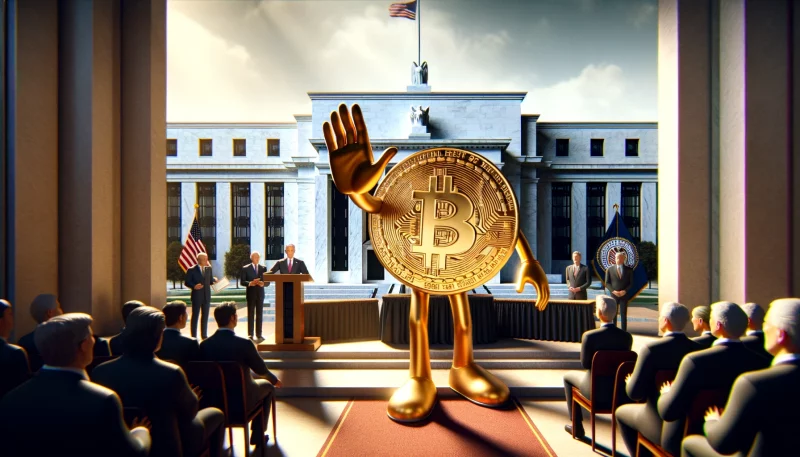
Bitcoin’s price rally may delay Fed rate cuts, says JPMorgan strategist
However, Jerome Powell said in his latest statement that the Fed is “not far” from getting the confidence to do that.
The recent surge in Bitcoin’s price and speculative tech stocks may indicate market overexcitement. While these trends might continue, the Fed might be hesitant to cut rates due to the combination of rising asset prices and high inflation, as lower rates could worsen inflation, says Marko Kolanovic, JPMorgan Chase & Co.’s chief market strategist.
Kolanovic suggests that the recent rally in Bitcoin’s price and speculative tech stocks is a sign of “froth” in the market. “Froth” refers to a situation where asset prices are inflated beyond their true value due to excessive speculation. According to him, these asset prices could go higher before they become too risky.
“The takeaway from these indicators is that there appears to be room for them to go further before we reach recent extremes of speculative excess,” Kolanovic stressed.
Kolanovic thinks this scenario could put the central banks in a dilemma where lowering interest rates could fuel further inflation. For this reason, the Fed might push back the rate cut plan to avoid the scenario, he suggests.
“…thinking about how rising asset prices [fit] into the broader picture of central banks looking to cut rates, the effect is likely to make them even more wary given strong growth and inflation,” Kolanovic added.
Kolanovic’s comments came after Bitcoin revisited the $69,000 level earlier this week. Bulls keep dominating as Bitcoin sets a new historical high of $70,000 today. At press time, BTC is trading at around $69,200, up around 11% in the last 24 hours, according to CoinGecko’s data.
Fed scans for inflation stability
During a hearing with the Senate Banking Committee on Thursday, Fed Chair Jerome Powell said that the Fed is waiting to be more certain that inflation is under control and steadily moving towards their 2% target before making any changes to their current monetary policies.
“We’re waiting to become more confident that inflation is moving sustainably at 2%,” said Powell. “When we do get that confidence — and we’re not far from it — it’ll be appropriate to begin to dial back the level of restriction.”
Powell reiterated that the Fed is open to the idea of reducing rates “at some point this year.” However, he clarified that this must be accompanied by convincing evidence that inflation is heading in the right direction.
With the next Federal Open Market Committee (FOMC) meeting scheduled for March 19-20, if the Fed maintains the interest rate at 5.25%-5.50%, this would mirror the decision made at the previous FOMC meeting in January.
